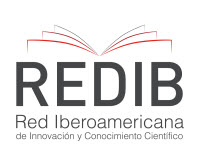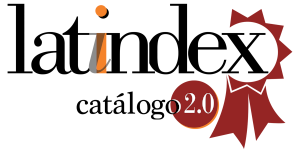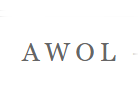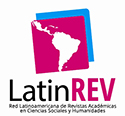About the Journal
Revista del Instituto de Historia Antigua Oriental "Dr. Abraham Rosenvasser" (RIHAO) is since 1972 the scholarly journal of the Instituto de Historia Antigua Oriental “Dr. Abraham Rosenvasser” (Institute for Ancient Near Eastern Studies), Facultad de Filosofía y Letras, Universidad de Buenos Aires. Its aim is to publish scholarly contributions related to the history of Ancient Near Eastern and Eastern Mediterranean societies, from the Paleolithic through the Roman-Hellenistic period. Manuscripts offering theoretical or interdisciplinary approaches will also be considered. All published papers must be original, except those that the Editorial Board considers to be of special interest because they stimulate debate or may serve as a reference for future research. Papers submitted to RIHAO are sent to one or two referees external to the Editorial Board, in accordance with the double-blind peer review system. RIHAO is published once a year (each issue covering the period January-December), and includes articles, brief communications and book reviews in Spanish, English, French, Portuguese, or Italian.
History of RIHAO
Revista del Instituto de Historia Antigua Oriental. Editor-in-Chief: Abraham Rosenvasser, issues 1 (1972) to 6 (1982); Ana Fund Patrón de Smith, issue 7/8 (1991).
Orientalia Argentina. Revista del Instituto de Historia Antigua Oriental "Dr. Abraham Rosenvasser" (nueva serie). Editor-in-Chief: Ana Fund Patrón de Smith, issues 9 (1993) to 11 (1994).
Revista del Instituto de Historia Antigua Oriental "Dr. Abraham Rosenvasser" (tercera serie). Editor-in-Chief: Alicia Daneri Rodrigo, issues 12/13 (2005-2006) to 15 (2008); Susana B. Murphy, issues 16 (2010) and 17 (2011).
Revista del Instituto de Historia Antigua Oriental "Dr. Abraham Rosenvasser" (nueva serie). Editor-in-Chief: Emanuel Pfoh, issues 18 (2017) to 22 (2021); Augusto Gayubas, issues 23 (2022) to present.
Peer review process
Articles submitted to RIHAO are initially evaluated by the Editorial Board, in order to consider their suitability to the objectives, guidelines, scope and editorial standards of the journal. Articles that meet these conditions are sent for evaluation to one or two referees external to the Editorial Board, in accordance with the double-blind peer review system. They are instructed to evaluate the relevance of the topic, the quality and clarity of the writing and the methodology of the author(s). They recommend whether the paper be accepted, rejected or accepted with modifications. In the latter case, the acceptance of a manuscript will be conditional until the necessary revisions have been made, and the Editorial Board considers the paper ready for publication. In case of controversy or other duly justified reasons, the article may be sent to an additional external referee, for which the previously expressed criteria will be maintained. The final decision on acceptance or rejection will be made by the Editorial Board.
Open Access Policy
RIHAO is committed to open access policies for scientific information, believing that scientific publications and publicly funded research should be freely and unrestrictedly circulated on the Internet. Published material may be read, downloaded and printed, as well as distributed and copied in accordance with the licence below.
Creative Commons License
Works published in RIHAO are licensed under a Creative Commons Attribution-NonCommercial 4.0 International License. You may copy and redistribute the material provided that you properly credit the authorship and place of publication of the original, indicate if changes were made to it, and not use the material for commercial purposes. This is a human-readable summary of (and not a substitute for) the license.
Author rights
Authors of original works retain copyright and grant the journal right of first publication under a Creative Commons Attribution-NonCommercial 4.0 International License. Authors are able to enter into separate, additional contractual arrangements for the non-exclusive distribution of the journal's published version of the work (e.g., post it to an institutional repository or publish it in a book), with an acknowledgment of its initial publication in this journal.
Article processing charges
RIHAO does not charge any fees or charges for the evaluation and processing of articles.
Code of ethics and best practice
The journal follows the guidelines of COPE ( Committee on Publication Ethics ) adapted according to the uses and requirements of our disciplinary field. In compliance with this code, the journal will ensure the scientific quality of the publications and the adequate response to the needs of the readers and the authors. The code is addressed to the editorial team, authors and reviewers. Entries that do not meet these ethical standards will be discarded.
Plagiarism detection
Authors wishing to submit papers to RIHAO are urged to avoid any practice that could be considered plagiarism, i.e. the exact reproduction of text, tables, images or other material from other authors or publications without giving proper credit of authorship or source. Textual quotations must be expressly placed in quotation marks, mentioning authorship and provenance. Recognising that this is the authors' responsibility, the Editorial Board will nevertheless carry out an anti-plagiarism check prior to the submission of each paper for peer review, making use of extensive web research and plagiarism checking software.
Self-archiving
The journal allows the deposit of both the pre-print and the post-print and even the final version, however temporary, in repositories, catalogues and others.
Indexation, directories and databases














.jpg)







